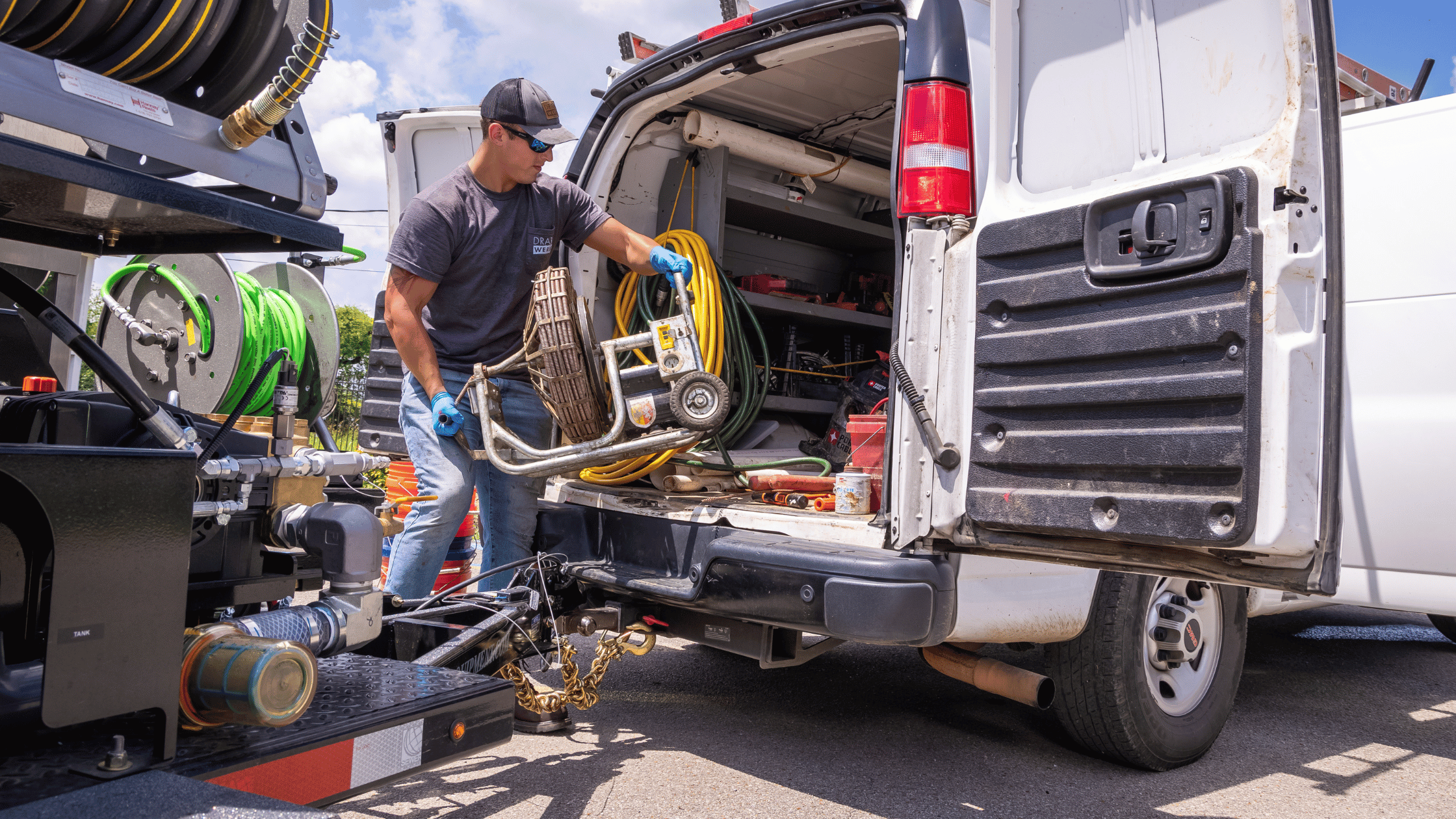Drain Care for Birmingham Homes Amidst the winter preparations in Birmingham, Alabama, homeowners must prioritize…
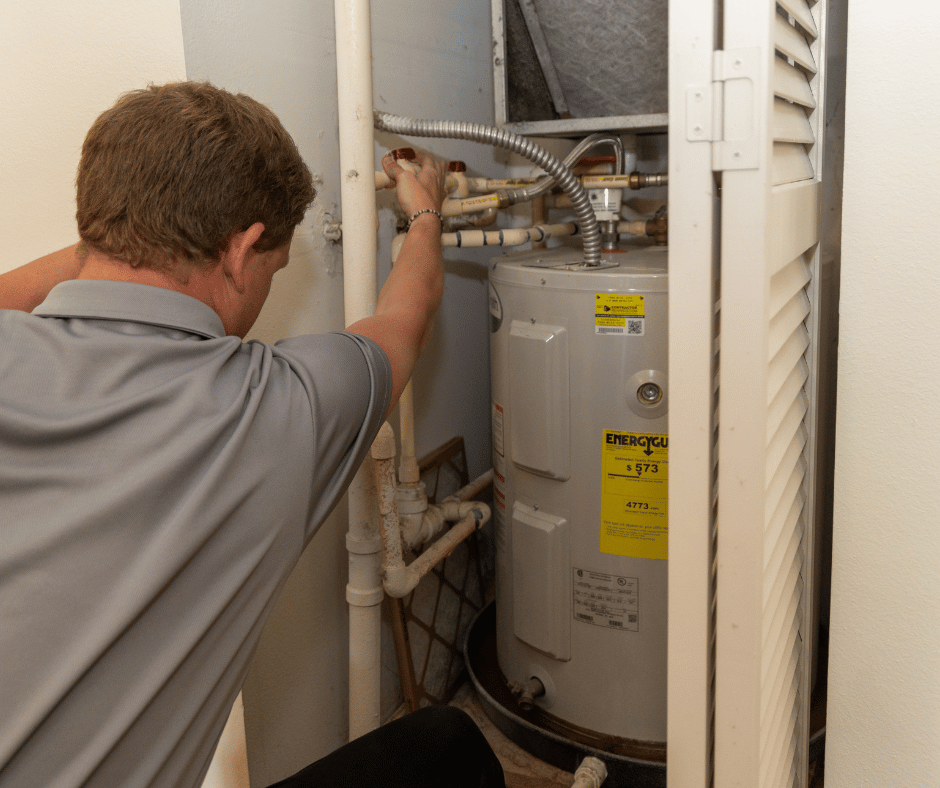
7 Signs You Need a New Water Heater: Birmingham’s Homeowners Guide
Water heaters play a vital role in maintaining the comfort of our homes, supplying hot water for showers, cleaning dishes, and laundry. However, similar to any appliance, they have a limited lifespan. They are making it crucial to identify the signs of an aging or failing water heater. This proactive approach allows you to replace it before facing unexpected cold showers or accumulating high repair bills.
Typically, standard water heaters last around a decade before signaling the need for replacement. While extending their lifespan slightly beyond this is possible, reaching the 10-year threshold should sound the consideration bell for a new unit. To determine your water heater’s age, check the serial number, usually located on a sticker at the top of the unit. If the date needs clarification, input the serial number on the manufacturer’s website for additional information.
Knowing When It’s Time to Bid Farewell to Your Water Heater
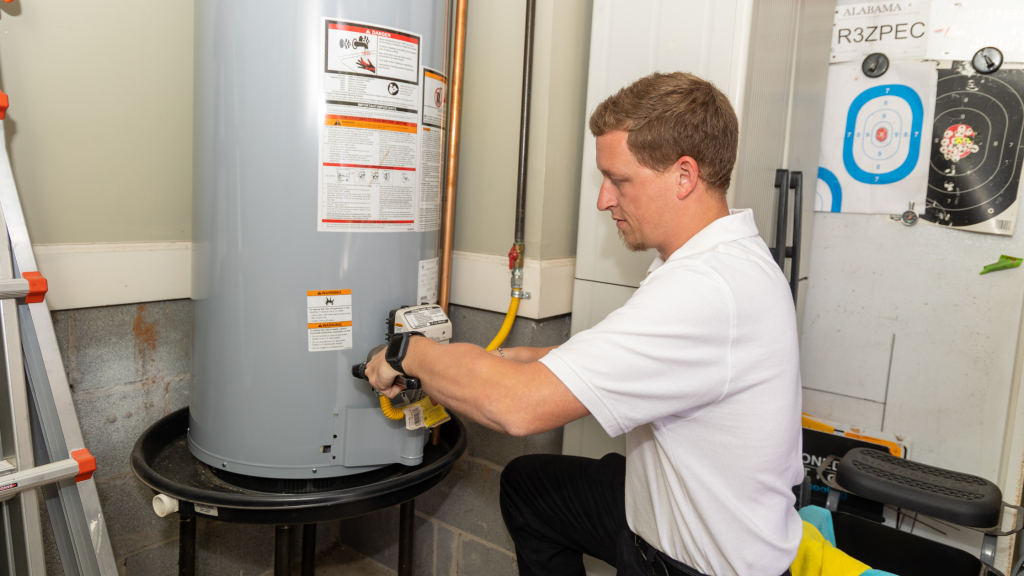
Whether you’re experiencing sudden cold showers or contemplating the efficiency of your aging unit, our blog post covers all aspects. We’ve compiled a comprehensive guide, offering insights from deciphering subtle warnings of a malfunctioning system to knowing when a repair will do or if it’s time for a complete replacement. Join us as we explore vital indicators, safety considerations, and the latest energy-efficient options.
This guide outlines ten unmistakable signs that it might be time to invest in a new water heater. Whether you’re a seasoned homeowner or a first-time buyer, we aim to empower you with the knowledge to make informed decisions about your water heater. Our guide is tailored for Birmingham homeowners. By recognizing these signs early on, you can save time and money and avoid potential hazards. Let’s dive in!
10 Signs It’s Time for a Replacement
- Age of Your Water Heater
- Rusty Water or Heater Inlet Valve
- Cold Showers are Becoming a Norm
- Rumblings and Noises
- Water Around the Heater
- Frequent Repairs Needed
- Insufficient Hot Water
1. Age of Your Water Heater
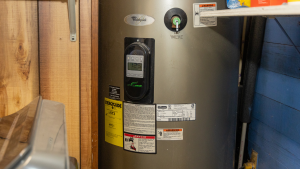
When your home’s water heater is mid-aged and consistently demands repairs, it’s a strong hint that a replacement might be due. Factors like high usage within the household or inadequate routine maintenance can lead to its early deterioration. In such situations, investing in a new water heater is often more economical than continuous repairs.
- Your Heater is Over 10 Years Old: Most water heaters last 8 to 12 years. If yours is pushing a decade or more, consider a replacement.
If your trusty unit has faithfully served your home for a decade or more, it’s prudent to contemplate the possibility of a replacement.
Aging water heaters are more susceptible to wear and tear, diminishing efficiency, and potential breakdowns. Investing in a new water heater at this stage not only ensures a reliable hot water supply but also presents an opportunity to explore the latest energy-efficient models, bringing enhanced performance and cost savings to your household. Consider it a proactive step towards maintaining a well-functioning and energy-conscious home environment.
2. Rusty Water or Heater Inlet Valve
- Discolored Output: If your hot water is brown or rusty, it might mean your water heater is rusting on the inside. This can lead to leaks soon.
3. Cold Showers are Becoming a Norm
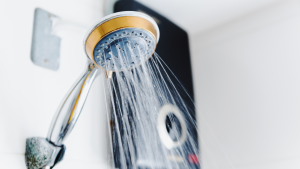 One night, you enjoy a warm, relaxing shower, but come morning, the water remains cold. This inconsistency suggests that your water heater might have gone out or the tank’s heating element has malfunctioned.
One night, you enjoy a warm, relaxing shower, but come morning, the water remains cold. This inconsistency suggests that your water heater might have gone out or the tank’s heating element has malfunctioned.
- Inconsistent Temperature: The heating element might fail if you get chilly surprises during a hot shower.
4. Rumblings and Noises
Audible cues can be telling. If your water heater produces noticeable sounds, like pronounced cracks or pops, it might suggest that mineral deposits have formed on its heating elements.
As a water heater ages, it may begin to emit unusual sounds. This is due to sediment accumulating at the tank’s base. When heated, this sediment solidifies, leading to audible banging or rumbling noises emanating from the heater.
Such sounds indicate that the water heater is approaching the end of its functional life and might need replacement soon.
- Loud Water Heater: Sediment build-up at the bottom can cause your heater to rumble or pop. Over time, this can erode the heater and cause leaks.
5. Water Around the Heater
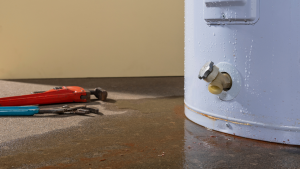 Inside your water heater’s outer casing is an insulation-filled steel tank. Despite consistent maintenance, this tank can wear out over time. It might signal a leak if you notice water pooling at the base. In such cases, it’s crucial to replace your water heater swiftly to prevent potential water damage.
Inside your water heater’s outer casing is an insulation-filled steel tank. Despite consistent maintenance, this tank can wear out over time. It might signal a leak if you notice water pooling at the base. In such cases, it’s crucial to replace your water heater swiftly to prevent potential water damage.
However, it’s essential to understand that only some puddles result from a deteriorating and leaky water heater tank. Occasional condensation can cause small amounts of water to gather around your heater and evaporate by the next day. To ensure your appliance’s health, having an expert technician look it over is best.
- Evidence of Leakage: Moisture or puddles around the heater usually signify a small leak or fracture in the tank.
6. Frequent Repairs Needed
When your water heater becomes a regular on the repairman’s schedule, it’s clear that your appliance is struggling to maintain its efficiency. Frequent breakdowns disrupt your daily routines and accumulate repair costs over time. In such cases, continuously patching up the system may become a diminishing returns scenario.
Each repair is a temporary solution, and the cumulative expenses might surpass the investment in a new, more reliable water heater. Upgrading to a modern, energy-efficient model ensures a more consistent hot water supply and brings long-term savings on repair bills and utility costs. Consider the cumulative benefits of a new unit to make a cost-effective and practical choice for your home.
- Constant Water Heater Reapairs: If you find yourself regularly calling for repairs, it might be more cost-effective to replace the unit entirely.
7. Insufficient Hot Water
A diminishing hot water supply can signal the need for a new water heater. As water heaters age, their efficiency in heating water decreases, and sediment accumulation further reduces their capacity.
If you’re consistently running out of hot water, it’s a definitive indication that your unit is on its last legs. For those facing this issue, exploring the advantages of a tankless water heater could be beneficial, as it promises a continuous flow of hot water for your household.
Experiencing chilly surprises amid what should be a warm shower is a clear signal that your water heater’s heating element may be faltering. The heating element is critical in maintaining the desired temperature of the water flowing into your home. When it begins to malfunction, it can lead to inconsistent water heating, resulting in unexpected cold spells during your showers.
Understanding this inconsistency is the first step towards resolving the issue. Several factors, such as sediment accumulation, a faulty thermostat, or a failing heating element, could contribute to this unwelcome change. You should be able to engage the expertise of a professional technician to conduct a thorough inspection of your water heater. They can pinpoint the root cause of the temperature irregularities and recommend appropriate solutions, ensuring that your household can once again enjoy the consistent and comfortable hot water supply it deserves.
- Decreased Capacity: It might be time to upgrade if you’re constantly running out of hot water faster than before.
Key Takeaways:
Water heaters use about 20% of a home’s energy. (Energy Star)
- Be Proactive: Identifying the early signs of a malfunctioning water heater can avert more considerable complications in the future. Addressing these issues promptly is always a wise decision.
- Prioritize Safety: A faulty water heater isn’t just an inconvenience; it’s a potential risk. Be especially vigilant about leaks and seek immediate intervention if you observe any warning signs.
- Think Green and Save: Contemporary water heaters boast enhanced energy efficiency. If a replacement is on your horizon, factor in the long-term savings a modern, energy-conserving model could provide.

While some water heater challenges can be addressed through expert repairs, part replacements, or sediment flushes from the tank, others necessitate a complete system replacement. Drain Werks is a reputable plumbing contractor with over years of expertise diagnosing water heater systems in Birmingham and nearby regions. After assessing your system, our techs can guide you on whether a repair or a complete replacement is the best choice. Contact Drain Werks at (205) 634-2099 to book a service appointment today.


